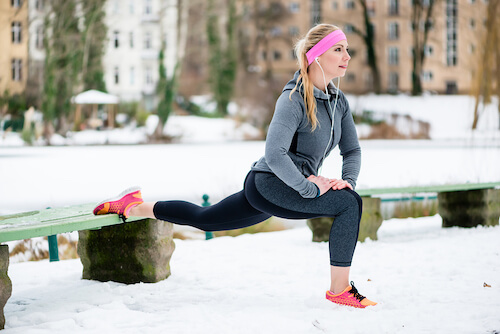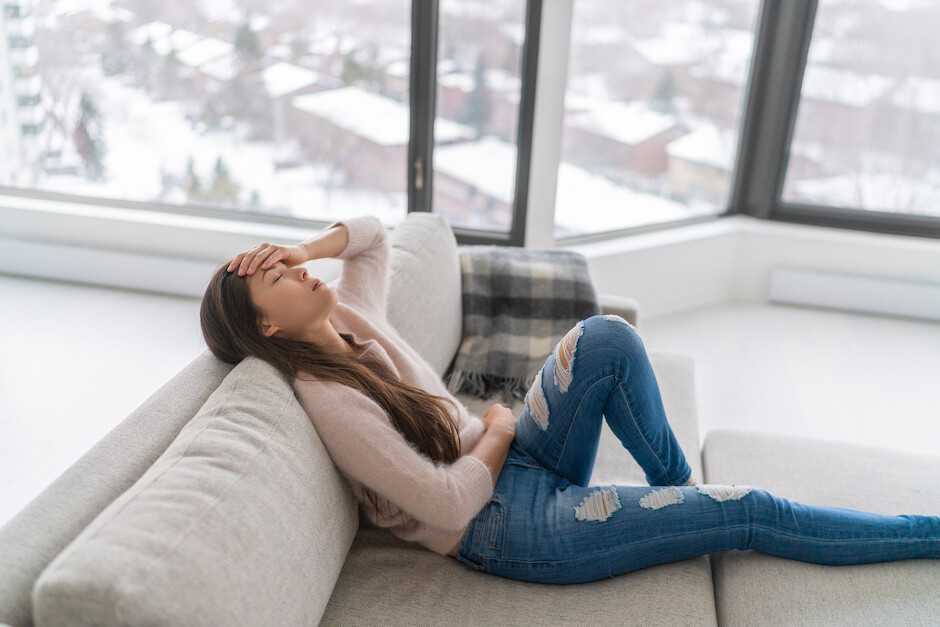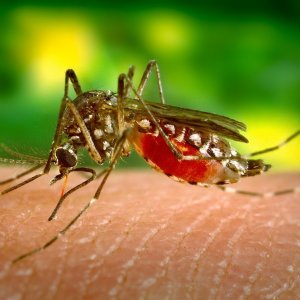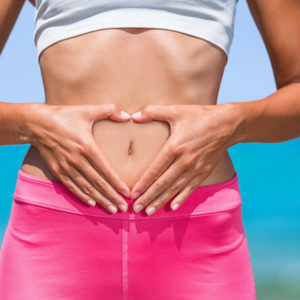So many things affect a woman’s monthly cycle. From diet, exercise, and sleep patterns to stress and emotional fluxes, just about anything can affect your cycle length, PMS, and menstruation duration. Did you know that seasonal changes actually play a part too? That’s right. . .Mother Nature gets a say in more than one way. So if you notice a difference in your monthly visit during the winter months, here’s an explanation of how winter affects your period.

Shorter days mean longer cycles.
As the number of hours of daylight decreases and we spend more time indoors, our cycles will tend to be longer. This is because sunlight triggers an increase in the amount of FSH secretion. This is one of the hormones that stimulates ovulation and brings on a woman’s cycle. So in the winter, most women will have slightly lower levels of FSH that will result in a longer cycle. If you’re used to a 28-day cycle, don’t be alarmed if it’s a few days longer than that during the winter.
In addition to lengthening your cycle, the study showed that the hormone fluctuations also meant periods that last longer.

Vitamin D deficiency can lead to irregular periods.
In addition to altering FSH levels, less time in the sunshine can cause vitamin D deficiency. Actually a hormone, vitamin D plays a huge role in the regulation of other hormones. When levels are low, women report irregularity and skipped periods. So if you aren’t able to spend some time soaking up some rays it’s super important to supplement your vitamin D.
Decreased activity can worsen PMS symptoms.
Most people are more active during warmer months, while we tend to stay indoors and decrease physical activity during colder months. Unfortunately, that may worsen premenstrual syndrome or even lead to premenstrual dysphoric disorder, a severe type of PMS. In one study, teenage girls reported a significant decrease in PMS symptoms after 8 weeks of regular exercise.

If winter has you in hibernation mode, try to find some ways to incorporate gentle exercise into your daily routine. Even just 30 minutes of yoga, walking, or other light exercise a few times a week may help reduce the occurrence of painful PMS.
Seasonal depression may compound PMS.
Many women already suffer from seasonal affective disorder (SAD) during winter months. If you notice you feel more depressed, sad, fatigued, or lonely during the winter, this may be a result of the physiological effects of decreased sunlight. This often compounds PMS and can make depression a real issue. If you suffer SAD, check out this post for more information and coping strategies.
Learn to go with the flow.
Well friends, if you’ve wondered if Old Man Winter is to blame for worsening period symptoms, it seems pretty clear that he does play a part. It’s important to understand and anticipate how winter affects your period. I mean, these seasonal influences are inevitable and unavoidable. But being aware and mentally prepared can help.

If you experience worsening period symptoms during the winter, plan ahead as your monthly visitor nears. Increase your physical activity, try to get some sunshine or take a vitamin D supplement, or simply plan for some downtime.
Don’t feel guilty for pampering yourself a bit more during the winter. If you need to spend a day resting, spend it. Make it a priority to get to the gym and to feed your body well. Try one of my favorite ways to relieve PMS symptoms and soothe and relax the body: Castor Oil Packs.
Want to learn more about a more natural way experience your period? Check out this post about Thinx. And I’ve got some great PMS DIY recipes to make your period a little more tolerable as well.











